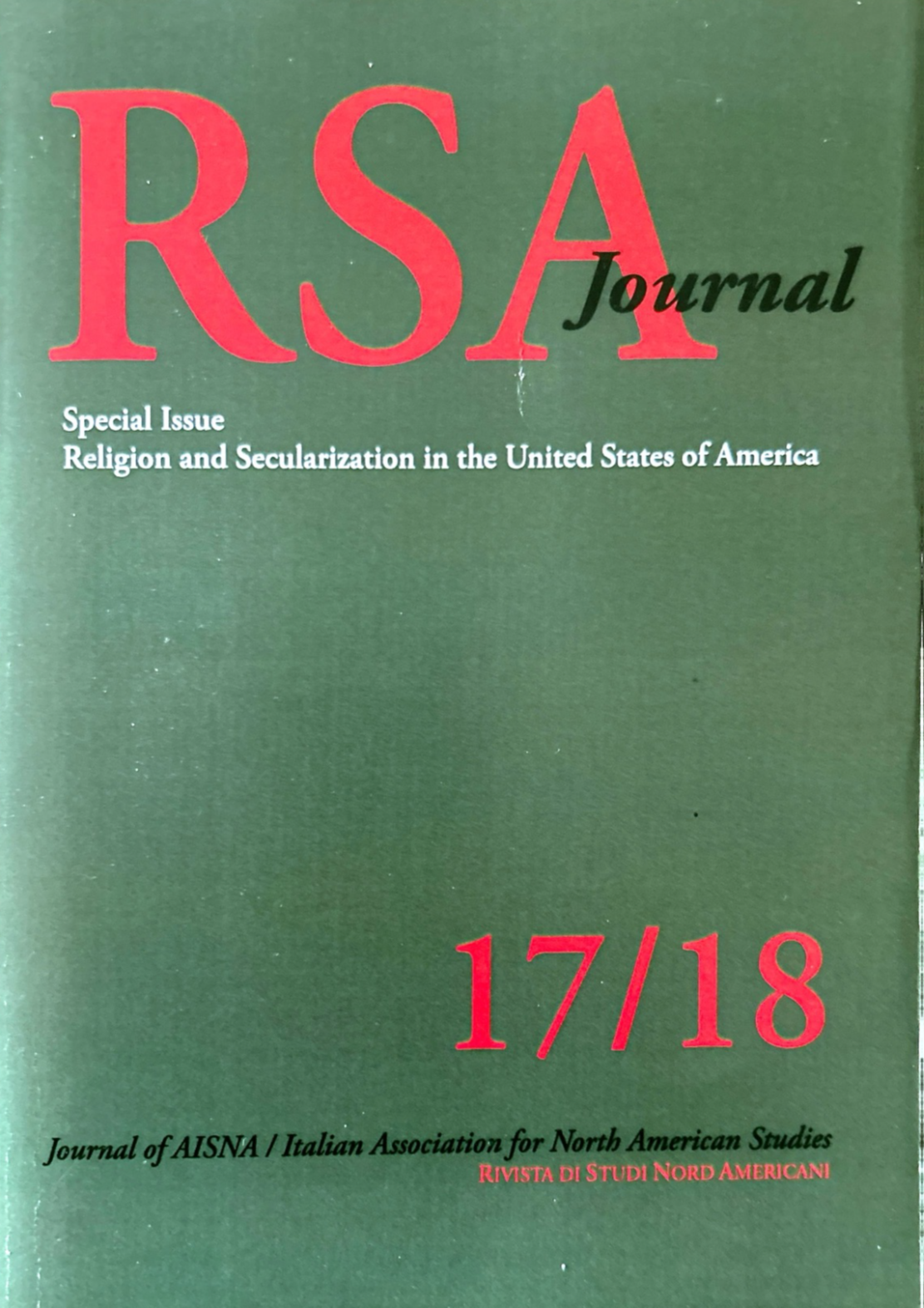A People “Almost Chosen” by God
Understanding Abraham Lincoln in Post-Secular Italy
DOI:
https://doi.org/10.13135/1592-4467/8788Parole chiave:
religion, faith, secularism, Lincoln, post-secularityAbstract
In order to understand the role of religion and secularism in the United States and their fall out in Europe and, namely, in Italy, it is necessary to reconsider United States history as part of the system of “Greater Europe,” extending to states of a European matrix arising in the Americas with the dissolution of colonial systems. The Christian right’s reaction to what it perceives today as a threat to the American universalism of providential origin from the radicalism of those who deny the equation between reason, universal moral values, the democracy founded upon them, and the United States, is actually part of a longer process.
The outburst of post-secularity on the American public scene is a historic phenomenon that, because of the specific configuration assumed by the relationship between politics and religion in the United States, it seems to be structurally far less worrying than it might be elsewhere, starting with Italy. The real, serious problem in the case of the United States is the fact that the come back of “the religious” has taken the form of political nationalism and of a closed, intransigent culture. In view of the country’s global political role and its significance as the laboratory of extreme modernity – or post-modernity if one prefers – this has consequences that are difficult to see as auspicious. From this perspective, the essay addresses the question of the peculiar way in which the relationship between faith and the public sphere developed in the United States.
##submission.downloads##
Pubblicato
Fascicolo
Sezione
Licenza
Avviso sul Copyright
RSAJournal applica una licenza CC BY-NC-ND a tutti i suoi contributi. Questa licenza consente agli utenti di copiare e distribuire il materiale in qualsiasi supporto o formato solo in forma non adattata, per scopi non commerciali e a condizione che venga esplicitato/a l'autore/autrice dell'opera. CC BY-NC-ND include i seguenti elementi:
- BY: L'autore deve essere riconosciuto come tale.
- NC: Sono consentiti solo utilizzi non commerciali dell'opera.
- ND: Non sono consentite opere derivate o adattamenti dell'opera.
Gli autori che pubblicano con questa rivista accettano i seguenti termini:
- Gli autori conservano il copyright e tutti i diritti di pubblicazione per i loro contributi alla rivista.
- Gli autori concedono alla rivista il diritto di prima pubblicazione in base alla licenza internazionale Creative Commons Attribution-NonCommercial-NoDerivatives 4.0, che consente ad altri di condividere l'opera non modificata per scopi non commerciali a condizione che venga esplicitato/a l'autore/autrice dell'opera e la sede di pubblicazione iniziale (questa rivista).
- Gli autori sono in grado di stipulare accordi contrattuali separati e aggiuntivi per la distribuzione non esclusiva della versione pubblicata dalla rivista (ad esempio, per inserirla in una repository istituzionale o pubblicarla in un libro), con l'indicazione che il contributo è stato precedentemente pubblicato in RSAJournal.




